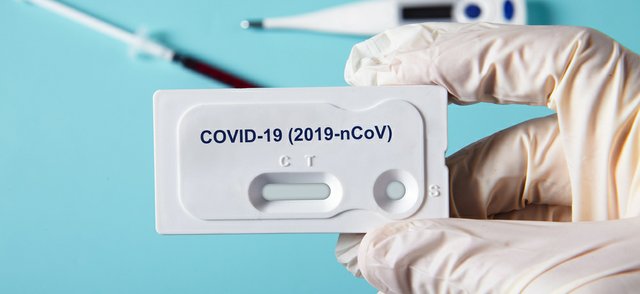
The self tests that are widely used in our country for the detection of positive cases, have significantly helped to break the transmission chains and to reduce the spread in schools and workplaces.
However, as scientists point out, there are vulnerabilities in self-diagnosis, which cause concern.
Their vulnerabilities include the possibility of incorrect application by the user which can lead to a false result, the reservation of a part of the population for their reliability despite the high fidelity rates, and especially the inability to control the honesty of the declared result on the platform.
According to iatronet.gr, according to research conducted by biochemist – biotechnologist Dimitra Mouliou with the support of Professor of Pulmonology at the University of Thessaly, Konstantinos Gourgoulianis, there is strong doubt in the population about the reliability, effectiveness and safety of self-diagnosis .
According to her results, published in the journal Diagnostics, two out of three respondents consider self-tests unreliable and two out of five consider them dangerous.
One in five is not honest with the statement of the result of the self test
The most important – perhaps – finding, which is outside the published study, is that one in five respondents in the online questionnaire, admitted that she is not honest with the statement of the result of the self test.
“Unfortunately, this carries risks, especially in people who have symptoms similar to that of COVID-19 or have come in contact with a confirmed case,” Mouliou told iatronet.
Given that today conducting two self-tests per week is a prerequisite for students to enter the classroom, this finding is problematic, while it is considered possible that the percentage of “insincerity” is higher than what has been admitted.
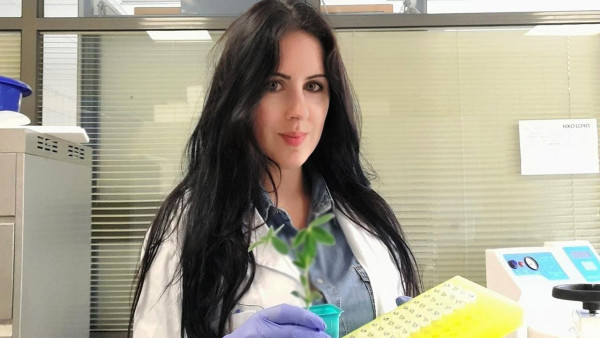
Dimitra Mouliou
The test with… Coca Cola and fake news
Abroad, but also in Greece, some videos have gone viral that show popular soft drinks to alter the result of a self test. The incident became the flag of some against the diagnostic tests, while it fed new scenarios about conspiracies. The biochemist has the scientific explanation:
“Clearly, Coca-Cola can activate the rapid test for a positive / negative result – depending on the mechanism of action of each cassette, and this is confirmed by me personally. The citric and phosphoric acids of the decoction react mainly with the dye but also other compounds of the rapid test. It is a matter of chemistry “, she says and explains:
“Some pieces of a puzzle, if we push them, can come together, but each piece is designed for a specific point in the puzzle. This is exactly what happens with the quick test. While it can theoretically give effect to other samples due to chemistry, it is designed for a specific airway sample. But that in no way makes it unreliable. ”
Regarding the theory of the carcinogenic effect of ethylene, which reinforces the views on the danger, she points out: “About half of medical devices and instruments are sterilized with ethylene oxide vapors before use – due to sensitivity to other sterilization methods – and strictly for any residues. But I did not hear anyone fear the possibility of ethylene residues in the syringe or catheter, as easily as the rapid test targets.”
When can the self test give a false result
There are several reasons why a test result may be false positive or false negative. In a review article, published in the journal Expert Review of Respiratory Medicine, also with the participation of Professor K. Gourgoulianis, Ms. Mouliou summarizes these reasons: very low viral load and poor sampling, contamination and possible cross-reactions with other microbes or chemicals – the latter two always, according to the test instructions, can affect a rapid antigen test, and to lead to a false result “, she states and adds:
“Respectively, in the nucleic acid amplification test that has been used and is widely used to identify the coronavirus genome, PCR, poor sampling and bad timing, low viral load, infections and any test inhibitors (blood or high viscosity in the sample due to mucus or inhalation of chemicals), are the main parameters that should be taken into account in the final result “.
The percentage of reliability of each test can not be determined precisely, because “while tests that have a reliability of much higher than 90% are approved worldwide – in correct uses as I mentioned before, we see some incorrect uses of them, which clearly can not to calculate the percentage of realistic reliability “.
Tests on vaccinated
Vaccination is done to get immunity to the virus, while the test is done to see if we are initially carriers of the virus. “If two people, one vaccinated and the other unvaccinated, catch the same viral load in the first stage, then the vaccinated person who has had successful immunity or someone who has had coronavirus in the past will be exposed to the virus early and will not let go. to reproduce maximally in the cells of his upper respiratory system, as the unvaccinated would do, and therefore carry much less viral load than the unvaccinated.
Therefore, regardless of the load, everyone can be carriers of the virus and transmit it “, notes the biochemist, arguing that everyone should be checked for whether they are carriers of the virus, in places where it is necessary, through tests. In addition, he clarifies that a negative test refers to the result of a given sample and time, and can not guarantee that the examinee will not become a carrier at the next time.
“We are not robots with biosensors, the light will come on when we carry a virus,” he said, noting that the CDC recommends that those vaccinated with symptoms or those who come in contact with a confirmed case be routinely tested.
Where we do the test, the waste in the trash
One in three respondents to the questionnaire conducts self-diagnosis in the dining room of their home, another one in three in the bathroom and 20.6% in the kitchen. 23.6% take the test wearing gloves.
In terms of the environmental dimension, three out of four (74.8%) said they throw waste in the trash. 9.4% in the recycling bin and only 15.8% return them to the pharmacy.
According to Ms. Mouliou, the need to return the used self-diagnosis tests and garbage to the pharmacy is environmentally urgent, as mentioned in the published study.
The study, which was conducted through a completed online questionnaire, involved a total of 614 citizens (268 men and 346 women), in four age categories, from 18 to 75 years old.
Citizens’ skepticism about the reliability and safety of self tests does not differ significantly based on the sheet. However, there are significant differences between citizens with different educational levels. The reservation is lower in people with higher education.
“Rapid tests, if used correctly, ie mainly in people with symptoms similar to COVID-19, in people who have come in contact with a confirmed case, or in people in areas with a very high epidemiological burden, are more likely to give a true result. On the contrary, in cases of improper use of rapid tests, false results can occur “, Ms. Mouliou explains, adding:” clearly, if we use fast tests in a society without a coronavirus, then any positive results will be false positives. Therefore, it is inappropriate to generally consider rapid tests to be unreliable. “
Latest News

Piraeus: Official Easter Shopping Hours and Retail Schedule
In anticipation of Easter, the Piraeus Chamber of Commerce has announced the proposed holiday hours for retail stores, running from Thursday, April 10 to Holy Saturday, April 19, 2025

World Day of Physical Activity: About One in Three Greek Adolescents Physically Inactive
Almost one-third (30.4%) of Greek adolescents are considered physically inactive, meaning they engage in less than three days of physical activity per week. This rate is significantly higher than the international average of 24%
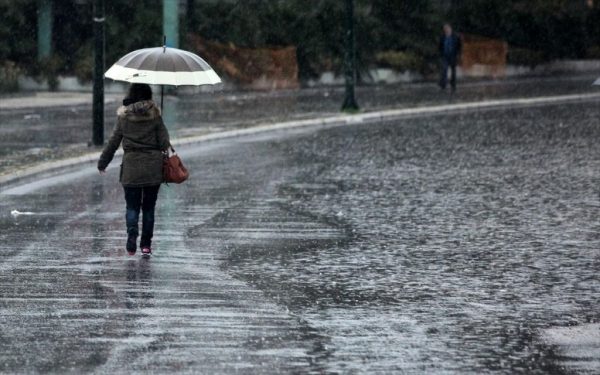
Unseasonably Low Temps, Storms, Snow Forecasted for Greece
A sharp decline in temperatures will begin Sunday afternoon in Macedonia and Thrace, progressively affecting central and southern Greece through Monday and Tuesday

Higher Prices for Easter Table Staples ‘Sting’ Greek Households
As inflation and production costs continue to weigh on the market, Greek families may find this year's Easter table more expensive than in previous year

Eluned Morgan: The Parthenon Marbles should be returned to Greece
The Welsh First Minister takes a clear stance in support of the reunification of the Parthenon Marbles in an exclusive interview with TA NEA Weekend

Traffic Disruptions in Athens This Weekend for Major Cycling Event
Athens police advise all residents and visitors to plan ahead and allow extra travel time

Trump’s 10% Tariffs Take Effect, Ushering in New Era in Trade
Trump’s tariffs represent a direct break from the post-WWII global trade framework that prioritized negotiated, reciprocal tariff reductions.

Oil Price Drops 8%
The sell-off was fueled by escalating fears of a global trade war after China responded aggressively to new U.S. tariffs, signaling a deepening economic rift.

Greece Opens Summer 2025 Season with 28.2 Million Airline Seats, Up 4.6%
The United Kingdom remains Greece’s largest source market, accounting for 5.6 million airline seats—an increase of 2.2% from last year—and representing 20% of the total.
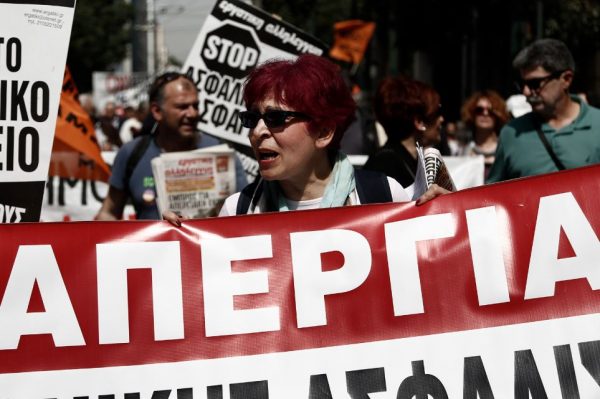
Greece’s Top Unions Announce April 9 Nationwide Strike
As of now, there is no official announcement on whether workers in public transport systems will join the strike, leaving questions about the availability of buses, metro, and trams on the day.













![Airbnb: Ρεκόρ διανυκτερεύσεων σε καταλύματα βραχυχρόνιας μίσθωσης – Στα ύψη η ζήτηση σε Ελλάδα [γραφήματα]](https://www.ot.gr/wp-content/uploads/2024/07/airbnb-1-90x90.jpg)


![Διεθνής Αερολιμένας Αθηνών: Νέα αύξηση 10% στην επιβατική κίνηση τον Μάρτιο [πίνακες]](https://www.ot.gr/wp-content/uploads/2025/04/aerodromiovenizelos_ape-768x433-1-90x90.jpg)
















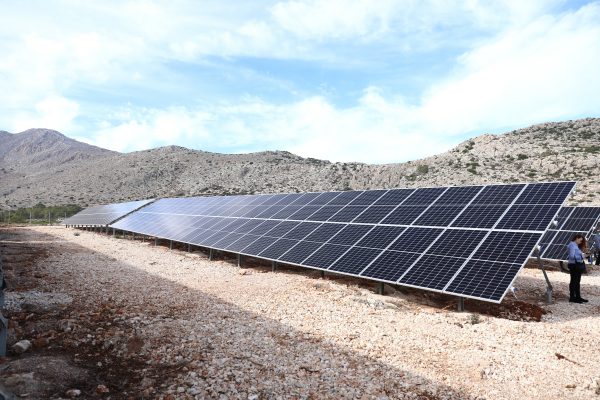






 Αριθμός Πιστοποίησης
Αριθμός Πιστοποίησης